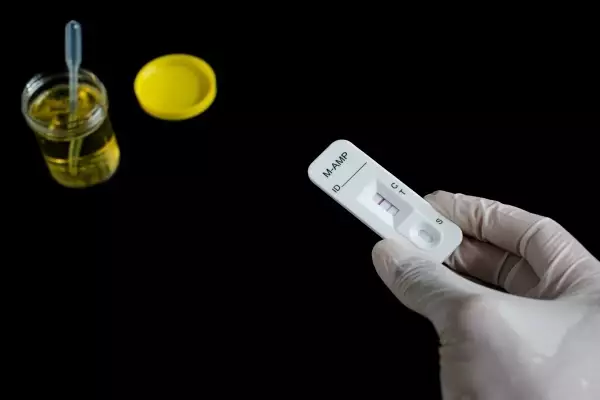Indeed, it is hard to get back to work after a positive drug test. Not only will you be subjected to more testing for substance use, but you may also experience uncomfortable or awkward interactions with co-workers if word spreads that you tested positive during drug and alcohol screening.
Having a failed drug test can hinder career growth, especially if you want to be promoted to a higher position. Many companies include pre-employment drug testing not only for new applicants but also current employees seeking a promotion. It is one of their safety-sensitive requirements, and failing an alcohol or drug test can jeopardize your position within the company and possibly your occupational opportunities outside the company.
Positive workplace drug test numbers spiked at their all-time high for sixteen years in 2020, with many believing the global pandemic led to increased use of illicit substances, which had a spillover effect on workplace safety.
Returning to duty can be stressful if you have unanswered questions, such as: How will you explain the positive drug test to your boss?
If you fail a drug test, what should you do? Do you need a follow-up evaluation? Should you consult drug and alcohol counselors? Will you be sent to a treatment program, or is brief education enough?
The number of questions that surface after a positive drug test can be overwhelming. This article will answer several of them and provide general advice on how to prevent another violation in the future.
Step-by-Step DOT Return-to-Duty Process
After a positive drug test ordered by a DOT-regulated employer, the process may vary slightly by industry, but the following key actions must be completed:
1. SAP Evaluation:
You must first be evaluated by a Substance Abuse Professional (SAP).
2. Education and/or Treatment Program:
After the initial assessment, you will be required to complete an education and/or treatment program as prescribed by the SAP.
3. Follow-Up Evaluation:
After completing education, counselling, or treatment, you must return to the original SAP for a follow-up evaluation.
4. Return-to-Duty Test:
The final step is to take a return-to-duty drug test. This test is ordered by the employer right before you resume safety-sensitive duties to demonstrate your readiness to resume your normal duties or begin a position that includes safety-sensitive functions.
5. Follow-Up Testing:
The DOT requires all regulated employers to order a minimum of six tests in the first 12 months of returning to duty. The SAP who evaluated you may also require follow-up testing for up to five years, in addition to any random drug testing your employer conducts during that period.
Now that you know the general steps after a positive drug test, it’s time to focus on how you can return to work after a failed drug test.
Consulting With A Substance Abuse Professional
The first thing you need to do after a positive drug test or refusal to drug test is meet with a Substance Abuse Professional (or SAP), someone who can help you complete a DOT acceptable substance abuse evaluation. They will evaluate you to determine the appropriate level of education, counseling or treatment. Even if you do not have a substance abuse diagnosis, you must at a minimum complete some form of substance use education as determined by the SAP.
In addition, many employers also have Employee Assistance Programs, or EAPs. This confidential service can provide you with the necessary help and support, including resources for substance abuse professionals in your area.
Returning To Work After A Failed Drug Test
Life after a positive drug test can feel uncertain, but it doesn’t have to end your career. With the right support system, you can get back to work. It may take time, but you can get through anything with the right attitude and determination.
Remember, you are not alone in this. Many people are willing to help, including your friends, family, substance abuse professionals, and your employer's EAP. So don't be afraid to ask for help after a positive drug test or when you need it.

Getting A Negative Drug Testing Result to Return to Work
You must also get a negative result from your first return to duty drug test to receive official clearance to go back to work. This step is very important, and you should make sure you are testing negative at home (unofficially) before presenting for your first return-to-duty test which will be recorded on a federal form per DOT rules. This means completely abstaining from prohibited drugs or substances to ensure you are ready for safe re-entry into your normal workplace duties.
Post-Treatment Care
After completing your treatment program, some individuals may need to continue with post-treatment care, or what is referred to as aftercare. The SAP determines whether it is appropriate or not. In many cases it is not necessary, but in cases where there may be a long-standing dependence on alcohol or drugs it is likely to be recommended.
Aftercare may include attending support group meetings, seeing a therapist or counselor regularly, and getting regular drug tests. Aftercare recommendations may also help you deal with any underlying issues that may have led to your drug use in the first place.
Aftercare is just as important as the treatment itself, so make sure to take it seriously. If you need aftercare, be sure to take advantage of support resources to stay on the right track, avoid relapse, and avoid any chances of a future positive test that could affect your occupation and livelihood.

Trying To Get Promoted
If you're on the way to getting promoted, a positive drug test can hinder you. Your employer may think that you cannot handle more responsibilities or that you are not fit for the position.
However, if you can prove to them that you have completed a treatment program and are now ready to return to duty, they may be more likely to give you the promotion. Remember, there are other factors for your promotion, but a drug test result should not be a major hindrance to your career.
This is why it is important to get treated and take your aftercare seriously.
Can you still get hired after failing a drug test? Can a job offer be rescinded?
In most cases, hiring managers will dismiss an individual from the hiring process if a drug test comes back positive. They may see a failed drug test as a person being irresponsible, this person may be a liability to the company, or potentially a legal issue if you would be responsible for driving company vehicles and integral to company safety. Understandably, they are legally allowed to rescind job offers or deny hiring due to failed drug tests.
In Conclusion
Getting back to work after a positive drug test can be difficult, but following your treatment plan and avoiding a relapse will make the process smoother and more manageable.
Most importantly, don’t be afraid to ask for help when you need it. Many people are willing to support you. Surround yourself with those who can encourage and motivate you during difficult times.

